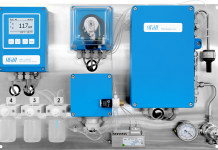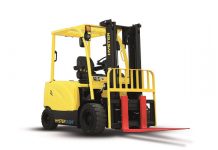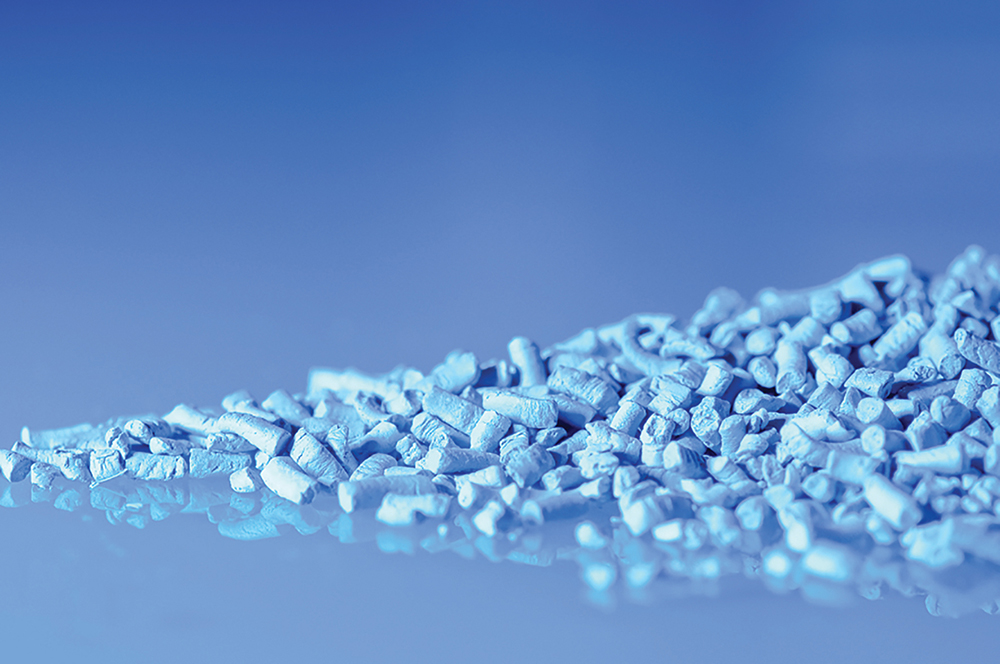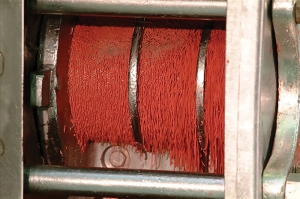In 2018 Exwold Technology is celebrating 25 years of business. With record breaking sales in 2017, Exwold has continued to grow and develop while continuing to specialise in contract formulation and solids processing.
Exwold is an expert in the formulation of granules for the Crop Protection market with 3 sites dedicated to the production of granules using both extrusion and more recently pan granulation technologies. 1000’s of tonnes of granules per annum are produced at these sites.
A typical process is:
Step 1: Blending and Milling
Based on the clients formulation, product is blended and millled using an Air Classifier Mill or Jet Mill to obtain particle sizes of <30 micron to produce a Feedstock.We can process sensitive materials with an explosion rating up to KST2 with the system equipped with Explosion Suppression system.
Step 2: Formation of Dough
Under controlled conditions, water is added to form a dough.
Step 3: Granulation
Extrusion is a core technology for Exwold and the company name originated from the use of this technology.
Exwold employs the industry standard technology for extruding granules based largely on radial extrusion. Low pressure extrusion techniques offer a versatile approach to a variety of granulation requirements including non crop applications. The granules range in diameter from 0.5-2.0mm.
The range of benefits offered by granules includes:
• Improved flow characteristics
• Improved efficiency
• Controlled dust
• Uniform particle size range
• Controlled Bulk density
• Uniform blends
• Controlled particle hardness
Exwold have also introduced Pan Granulation technology at the Haverton Hill site.
Step 4: Drying
Using Fluid Bed Drying technology.
We have a facility dedicated to Highly Active herbicides. A combination of a stand alone facility and stringent clean-down processes Exwold provides our clients with confidence in meeting the industry’s strict requirements on cross contamination levels. This facility is scaled to produce 500kg a day depending on the formulation and also to pack on site.
Exwold’s 4th site based at Brenda Road, Hartlepool offers wide ranging solids processing capabilities including:
Compaction: Producing thousands of tonnes of granules using roll compaction technology which can be used to improve flow of powder products or for applications such as de-icers. This technology uses very high pressure, passing powder through two rollers compressing it to form a flat “ribbon” which is then milled to the desired granule size. Granule size ranges from 0.5-10mm.
2017 saw significant investment in the compactor unit to improving the operation and environmental control.
Milling: Capabilities to mill solid products, technologies offered include:
Kibbling is often referred to as crushing, de-compacting or granulating and uses cheese-grater type screens or rotating knives to provide a coarse product with particle diameters of between 3mm and 25mm.
Milling:
• Using hammer/pin mills we can produce a coarse material with a particle diameter of 2000 microns or below.
• Using our Baumeister Turbo mill we can achieve smaller particle sizes down to 75 microns.
The Micronisation capabilities Exwold can offer you include:
• Air Classifier Milling (ACM) and Jet Milling
• Milling to approximately 10 microns in diameter
Blending , Impregnation and Coating : 8 blenders ranging up to 10,000L are available for charging and blending of solid ingredients combined with liquid addition capabilities. Exwold currently contract blend for the Biocide, Metal Working, Plastics, Fine Chemical, and Laboratory Supply sectors plus Crop Protection markets
Packing: 5 packing lines are available at Brenda Road for packing of bulk granules and powders produced across the business. Packing ranges from 1kg packs upwards providing an in-house packing solution for customers. Exwold opened an additional packing unit in 2017 due to increased Crop Protection demands and have made further investments in 2D matrix printing capabilities.
Exwold continue to re-invest in their core business and this year investments planned in the first 6 months include:
• New 2,000L Drum Blender planned for installation and commissioning Q2 with capabilities to dual pack increasing potential capacity upwards of 10,000mtpa.
• Up-grade of Packing Lines to improve operational efficiency.
• Up-grade of ERP system in the first 6 months to support the continued business growth
Take a look at the Exwold website for up-dates on completion of these investments as they complete along with more information about Exwold’s capabilities. www.exwold.com
Exwold Blending
Case Study
Customer Problem:
Our customer had formulated a laboratory scale blend of various components to reproduce the physical properties of a waste product to be removed from a hazardous environment.
They required scale up to multi tonne bulk material to enable trials to be carried out in 5 weeks of enquiry being received to test their waste removal process.
Key issues
• Complex blend of components of varying particle sizes
• Maintaining the various particle sizes essential to the product in use
• Homogeneous blend required of components, some present in trace quantities
• Short timescale
• New customer with tightly regulated internal processes
Exwold Solution:
Through close cooperation with the customer we were able to perform the required COSHH assessment, develop a suitable production process, provide a quotation, identify suitable packaging and reserve a suitable production slot to allow manufacture and delivery within the required timescale.
By initiating vendor approvals and customer account set up ahead of receipt of order we were able to ensure all necessary documentation was in place before the raw materials were received.
This allowed production to proceed and finished product to be tested and delivered to customer in good time for their planned trial.













